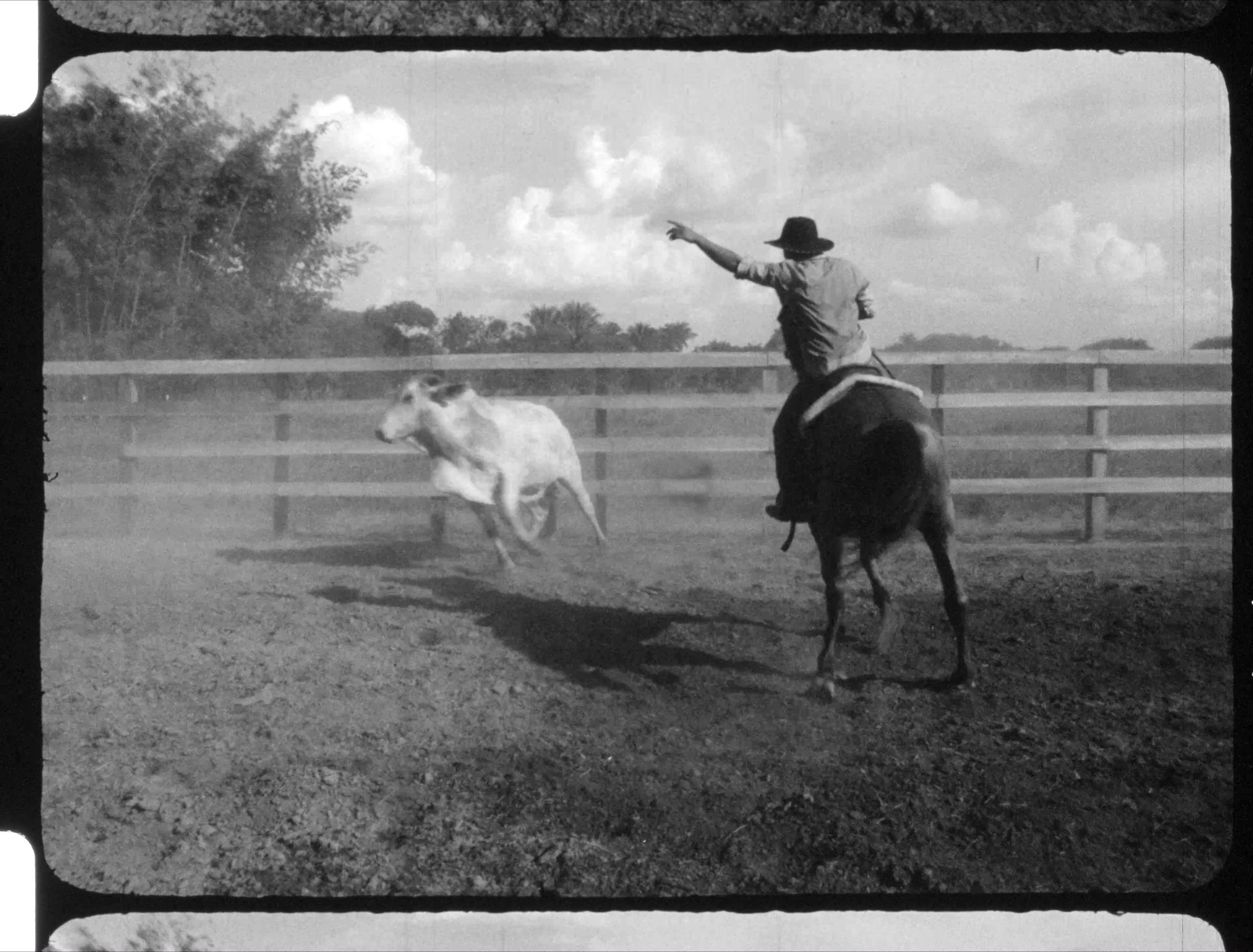On June 6, 1957, a former guerrilla leader who had laid down his arms in the countryside was killed under confusing circumstances in the city of Bogotá. He was with friends in a cantina located in the industrial sector of the city when they were surrounded by National Police agents as part of an operation. They shot him down. Half a century later, in 2019, several students and social leaders were killed by the National Police in the same city’s streets. Tonada conjures these events and confronts the traumas of betrayal through a cinematic composition meant to be sung. What does it sing? It sings these moments that connect the metropolis with territories at the edges of rurality, film, and the ghost of memory.

Tonada, Tonada
Andrés Jurado, María Rojas Arias
300’
- Status
- Directors
Directors’ statement
This project is a jour-ney through the spiral of betrayals of peace agree-ments in Colombian history. From the colonial era – understood as a turbulence, a hurricane that still spins – to modern times, it traces stories of thoselike Benkos Biohó, Bateman, and others who werebetrayed by governments and oppressors. Thefilm doesn’t just inform; it creates an emotional and audiovisual dialogue between the 1953 guerrilla disarmament and the post-2016 peace period. The research draws on public archives – films, radio, music, literature – fieldwork, interviews, and direct experience in each territory. We assembled a visual archive of 1950s Bogotá from the National Library, Museo de Bogotá, and other sources, alongside period press, Marco Tulio Lisarazo’s films, and key references like Canaguaro, Guadalupe años sin cuenta, and writings by Molano and Roldán. Oral and cinematic memories, ungrounded images and spectral voices emerge from the common grave of chests damaged by treason – that pronounce earthly voices imagining, thinking, and carried by the same wind.
Technical sheet
- Production:La Vulcanizadora (Andrés Jurado, María Rojas Arias : lavulcanizadoraco@gmail.com)
- Budget:253 354 €
- Acquired budget :45 208 €
- Funds:Joaquim Jordà Grant
- Shooting countries:Colombie, Venezuela, Espagne, Portuga